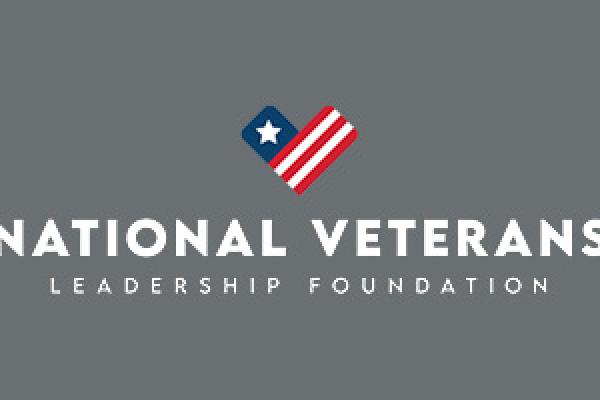Alumnus creates national foundation to support military-connected students

As part of a family helmed by a military serviceman, Jim Miller moved 28 times before turning 18.
For some of that time, Miller’s father Lawrence attended Ohio State to earn his bachelor’s and master’s degrees during the late 1960s, a tumultuous time in the U.S. for veterans because of the public’s opinion on the Vietnam War.
“I feel blessed that my dad got to attend Ohio State and blessed that that dramatically improved the life experiences of my brother and sister and I,” Miller said.
Throughout his adolescence, Miller held on to the appreciation he had for Ohio State. In 1983, he graduated from the university himself with a bachelor’s degree in communication and followed that by working at Ohio State for the next 35 years.
While holding key leadership roles at his alma mater, most notably in the Fisher College of Business, Miller became a passionate volunteer and dedicated donor, supporting student veterans in honor of his father who passed away in 2011. With friends and campus partners, he started by organizing the renovation of the Veterans House on campus, but he knew there had to be opportunities to impact a larger subset of the military-connected population that totaled more than 2,200 students.
With that goal in mind, Miller lead the community efforts to create the Major Lawrence Miller Military Community Advocate (MCA) Program. The Program gives student veterans a way to serve the university and support military-connected students in achieving academic and professional success. Students in this program work in administrative and academic offices that interact with veterans frequently across Ohio State, helping staff understand the unique challenges facing student veterans and developing outreach programs to bring more awareness to this non-traditional student population. Over the last decade, the program has placed 220 student veterans in offices on Ohio State campuses, both in Columbus and on all regional campuses.
“Non-traditional students bring a unique set of perspectives that adds to the complexity and dimensions of the university in its entirety,” Miller said. “Their service in the military, and often the global experiences they have, are added assets to the university.”
Launching the MCA program benefited the military-connected students on Ohio State’s campuses significantly. Miller acknowledges, though, that more could be done with increased resources.
Since starting to communicate with these students more, Miller often makes a point to eschew the conventional terminology of “student veterans” in favor of “military-connected students” to recognize that there’s more than one way to serve — whether it’s the National Guard, reserve, ROTC, active duty or being a family member.
After working at the university for more than three decades and seeing what providing these specialized services could accomplish, Miller knew it was time to start a new venture. Miller wanted to take everything he learned from supporting Ohio State’s military-connected population and set his sights on creating a similar — but larger — impact at colleges and universities across the country. He left Ohio State in September 2020 and began drafting ideas for the National Veterans Leadership Foundation (NVLF), which officially launched in January 2021.
As NVLF president, Miller is committed to improving the experiences of military-connected students in higher education by strengthening military-veteran offices on college campuses and collaborating with universities to establish better resources and services.
Miller appreciates the flexibility that launching the foundation during a global pandemic has afforded the alliance, as holding quarterly Zoom sessions has kept everyone connected in between annual gatherings.
Last month, members of NVLF’s National Leaders Alliance met in person at the first official NVLF Advancement Seminar. Hosted at The Blackwell Inn on Ohio State’s campus, military-veteran office directors and development professionals from all 16 member universities with diverse student populations stayed for a two-day conference focused on how to assist military-connected students.
From creating a vision to finding allies to supporting life transitions, participants shared best practices and discussed concrete steps they should focus on as they continue to create a better environment for students.
“The conference was designed to be a start of a journey to enable people to go back home and take what we’re doing and … continue to march forward with a plan that’s unique to their institution, that meets the needs of their students,” Miller said. “We couldn’t have been more pleased with the event and the response that we got from the universities and their sustained commitment to remain involved and to work together to chart a positive future for all 16 universities.”
As NVLF programs continue to launch, the influence of Miller’s time at Ohio State is evident.
Ohio State’s MCA Program is being taken nationally as NVLF will launch the advocate program at the 16 affiliated institutions this autumn. The NVLF also supports a four-month fellowship program that allows military-connected students to expand their leadership skills, see how service shapes their lives and careers, form long-lasting connections and contribute to the MilVet community on their campuses.
Looking back, Miller not only credits his contributions to Ohio State’s military-connected population as motivation to create NVLF but also his liberal arts education and the mentors he had as a student.
“My entire professional career and now this foundation has been inspired by the amazing liberal arts education I received at The Ohio State University. Two amazing faculty members, Dr. Herb Asher and Dr. Osborn Smallwood were incredible mentors. In fact, I am blessed to still have the wise counsel of Dr. Asher as I think through both challenges and opportunities.
“When creating something new and out of the box, there is no degree better than that of the arts and sciences. I value a liberal arts education as it has provided me with the necessary tools for success.”
